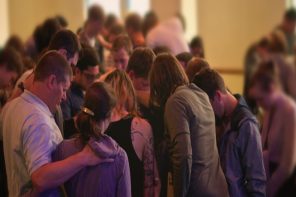Madeline L’Engle, the author of A Wrinkle in Time among other things, once said this about her faith: “We try to be too reasonable about what we believe. What I believe is not reasonable at all. It’s hilariously impossible.” And she’s right.
Of course, there are reasonable parts of Christianity – it is reasonable, for example, when you look at the complexity of the world around us to conclude that we do not exist by chance but by intelligent design. That’s a reasonable conclusion. But in other ways, the whole Christian faith and the Christian life that results from it is entirely unreasonable. We believe that there was a man born of a virgin who never sinned. And this man was not only a man, but is also God in the flesh. And we believe that this man died on the cross in our place and then was raised from the dead. We believe in an afterlife despite there not being any way to go there or examine it. This is what faith is, and in that way, it is unreasonable. That’s why it is a matter of faith.
Further, the lives we lead as Christians are strange. Very strange, when you compare them to the normal way of operating in the world. We are a strange people, and Peter knew it. He said as much in 1 Peter 2:11.
He called us strangers. Exiles. Aliens. People not of this world.
Then later, in chapter 4, he recognized that strangeness again:
For you have spent enough time in the past doing what pagans choose to do—living in debauchery, lust, drunkenness, orgies, carousing and detestable idolatry. They are surprised that you do not join them in their reckless, wild living, and they heap abuse on you (1 Peter 4:3-4).
He says that the friends and neighbors of these Christians find it very strange when they see their behavior; they don’t fit in any more. They are weird. And they slander them because of their strangeness.
This is characteristic of what it means to be a Christian in the world, and it always has been. The way the early Christian community treated women, for example, was very strange. In a Roman culture which tended to only ascribe value to women based on their ability to bear children, the Christian idea that all women, regardless of their marital status, were recognized as valuable members of the family of God, was very strange. The fact that Christians regularly remembered the death and resurrection of Jesus by repeating His words that “This is my body, broken for you” and “This is my blood, spilled for you” was strange. So strange that they were accused of cannibalism. Even the earliest Christian confession that Jesus Christ is Lord was very strange because the common confession that linked the Roman Empire together, regardless of your race, was that no matter where you came from, Caesar is Lord. These early people lived so strangely – so differently – that they had to come up with a new name for them in Antioch – they called them “Christians”.
So Christians are strange, but we are only temporarily strange.
Even though we might be considered strange now, and even judged because we think and act differently, the world is not the final judge. There is another judgment coming. And that judgment, in a sense, is going to bring about what is real normalcy. Because the way we think? The way we act? These are strange things now, but they won’t be strange then. We are the aliens and sojourners now, but we will be the ones at home then. Friends, we are on the road to the true city, and we are already citizens there. And until we get there, we will always feel that sense of strangeness, like we are always just a little out of place. But not forever.
Someday, we will be home.
Subscribe to MichaelKelley.co
Never miss a new post. Subscribe to receive these posts in your inbox and to receive information about new discipleship resources.




Wonderful message and good reminders.